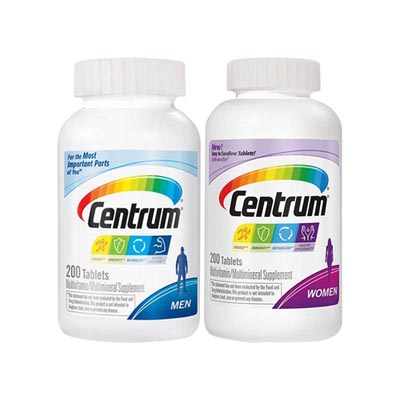- 阅读
- 阅读
- 技巧
- 百科
- 试题
- 文化
- 技能
Multivitamin Use Linked to Lowered Cancer Risk
服用复合维生素可降低癌症危险
After a series of conflicting reports about whether vitamin pills can stave off chronic disease, researchers announced on Wednesday that a large clinical trial of nearly 15,000 older male doctors followed for more than a decade found that those taking a daily multivitamin experienced 8 percent fewer cancers than the subjects taking dummy pills.
关于维生素是否可以减少慢性病的发作,此前已经发表过一系列前后矛盾的研究报告,而在上周三,研究者宣布,他们对近1.5万名年长男性医生进行了为期超过10年的大型临床试验,结果发现每天服用一粒复合维生素的人,患癌症的风险较每天服用安慰剂的人少了近8%。
While many studies have focused on the effects of high doses of particular vitamins or minerals, like calcium and vitamin D, this clinical trial examined whether a common daily multivitamin had an effect on overall cancer risk. A randomized, double-blinded clinical trial, the kind considered the most rigorous type of study, it was one of the largest and longest efforts to address questions about vitamin use.
此前很多研究专注于研究大剂量服用某种特定的维生素或者矿物质——比如钙和维生素D,会对健康带来什么样的影响,而该项临床试验研究的是每天服用普通的复合维生素,是否对患癌的风险产生影响。这项研究采用的是随机双盲临床测试,这被认为是最严格的测试方法,迄今为止,这也是对服用维生素对健康带来的作用所进行的规模最大、时间跨度最长的研究之一。
The findings were to be presented Wednesday at an American Association for Cancer Research conference on cancer prevention in Anaheim, Calif., and the paper was published online in The Journal of the American Medical Association.
这项研究结果已于上周四在加州阿纳海姆市举行的美国癌症研究协会(American Association for Cancer Research conference)癌症预防会议上宣读,并在《美国医学会期刊》(The Journal of the American Medical Association)的在线版发表。

The reduction in total cancers was small but statistically significant, said the study’s lead author, Dr. J. Michael Gaziano, a cardiologist at Brigham and Women’s Hospital and the VA Boston Healthcare System. While the main reason to take a multivitamin is to prevent nutritional deficiencies, Dr. Gaziano said, “it certainly appears there is a modest reduction in the risk of cancer from a typical multivitamin.”
这项研究的主要作者J·迈克尔·加兹亚诺(Dr. J. Michael Gaziano)目前在布莱根妇女医院(Brigham and Women’s Hospital)和波士顿医疗保健系统 (VA Boston Healthcare System)担任心脏病专科医生,他说,研究发现,癌症发病数降低的总体数字并不大,但具有显著的统计学意义。他还介绍说,虽然服用复合维生素的主要原因在于预防营养缺乏,但是,“研究结果显然可以说明,服用常用的复合维生素,就可以适度降低癌症的发病危险。”
He noted that other measures are likely to protect against cancer more effectively than the daily use of multivitamins.
不过他也指出,相比每天服复合维生素,还有些做法在减少罹患癌症风险方面可能更有用。
“It would be a big mistake for people to go out and take a multivitamin instead of quitting smoking or doing other things that we have a higher suspicion play a bigger role, like eating a good diet and getting exercise,” Dr. Gaziano said. “You’ve got to keep wearing your sunscreen.”
“假如大家以为吃吃复合维生素就能安枕无忧,而没有戒烟,或者做那些我们认为在抗癌方面可以发挥更大作用的事情,比如注意饮食,持续锻炼,坚持涂防晒霜,那可就大错特错了,”加兹亚诺说。
The study was supported by the National Institutes of Health and a grant, initiated by the investigators, from the chemical company BASF. Pfizer provided the multivitamins. The sponsors did not influence the study design, data analysis or manuscript preparation, the authors said.
这项研究得到了美国国家卫生研究所(National Institutes of Health)的支持,研究资金由化学公司巴斯夫(BASF)提供。辉瑞制药(Pfizer)提供了复合维生素。研究者说,赞助公司并未对研究设计、数据分析或文稿准备施加影响。
About half of all Americans take some form of a vitamin supplement, and at least one-third take a multivitamin. But many recent vitamin studies have been disappointing, finding not only a lack of benefit but even some harm associated with large doses of certain supplements. The 2010 dietary guidelines for Americans state that there is no evidence to support taking a multivitamin or mineral supplement to prevent chronic disease.
大约半数美国人会服用某种维生素补剂,至少三分之一服用复合维生素。但不少近期关于维生素的研究其结果令人失望,这些研究发现服用维生素不仅无法对健康产生益处,如果大剂量服用某些补剂,甚至还可能伤害身体。《2010年美国居民膳食指南》(2010 dietary guidelines for Americans)中表明,没有证据支持服用复合维生素或矿物质补剂能有效预防慢性病。
The American Cancer Society recommends that people eat a balanced diet, but that those who take supplements choose a balanced multivitamin that contains no more than 100 percent of the daily value of most nutrients.
美国癌症协会(American Cancer Society)推荐人们均衡饮食,如果需要服用补剂,则应选择一种配比均衡的复合维生素,大部分营养素的剂量都不要超过每日推荐量的100%。
Though several researchers said they were somewhat surprised by the findings, others called the results encouraging.
一些研究者说,他们对本研究的结果感到有些意外,而另一些则认为这个结果鼓舞人心。
“It is a small overall effect, but from a public health standpoint, it could be of great importance,” said Dr. E. Robert Greenberg, an affiliate at Fred Hutchinson Cancer Research Center in Seattle. “Other than quitting smoking, there’s not much else out there that has shown it will reduce your cancer risk by nearly 10 percent.”
“它产生的总体影响并不大,但从公共卫生的角度来说具有重要意义,”西雅图弗雷德·哈钦森癌症研究中心(Fred Hutchinson Cancer Research Center)成员E·罗伯特·格林伯格医生(Dr. E. Robert Greenberg)说:“除了戒烟,还没有多少因素能将人们患癌的风险降低近10%。”
Multivitamin use had no effect on the incidence of prostate cancer, which was the most common cancer diagnosed in the study participants. When researchers looked at the effect of vitamin use on all other cancers, they found a 12 percent reduction in occurrence. Overall cancer deaths were reduced among vitamin users, but the difference was not statistically significant.
复合维生素对前列腺癌的发病率未产生任何影响,而前列腺癌是参试人员中最常被确诊出的癌症。如果将前列腺癌剔除在外,对于其他所有癌症,复合维生素可降低12%的发病率。同时,总体而言服用维生素者患癌后的死亡率也降低了,但这方面的区别没有统计显著性。
A major limitation of the study is that it included only male doctors, who were particularly healthy, with extremely low smoking rates, said Marji McCullough, a nutritional epidemiologist with the American Cancer Society. “We still need to find out whether these findings can be applied to others in the population,” she said.
美国癌症协会的营养流行病学家马吉·麦卡洛(Marji McCullough)说,这项研究存在一个重要的局限——它只调查了男性医生,而这个群体吸烟率极低,总体来说非常健康。她说:“我们仍需要了解,这个发现是否也能适用于其他人群。”
The research effort might have benefited from the fact that the doctors who participated were diligent about taking their pills, and the researchers suggested that the effect of multivitamin use might have been muted because the participants were health-conscious to begin with.
由于参加测试的医生会严谨地坚持服用维生素,因此研究结果会更加可靠,此外研究者认为,这项研究中服用复合维生素的作用可能有所削弱,因为参加测试者本身就深具保健意识。
Dr. David Chapin, 73, a gynecologist at Beth Israel Deaconess Medical Center in Boston who participated in the trial, said that although he had “never believed” in vitamins, he might start taking a daily multivitamin now, despite the modest benefit.
73岁的大卫·查宾(Dr. David Chapin)医生是波士顿伯斯·以色列·狄肯尼斯医学中心(Beth Israel Deaconess Medical Center)的妇科大夫,他说尽管他“从来都不信”维生素,而且这项研究中维生素带来的益处非常轻微,但他可能会打现在起,每天坚持服用复合维生素。
“A lot of studies make big news, but when you look at the nitty-gritty, they don’t show all that much,” Dr. Chapin said, adding that he recently discovered he had been taking a placebo pill. “This was a very reliable study, it was very well designed and administered, and it went on and on and on.”
“不少研究结果都上了新闻头条,但如果你仔细查看究竟,会发现它们言过其实,”查宾医生说,他是近期才发现在研究中自己服用的是安慰剂。他说:“这是个很可靠的研究,设计和执行得都非常好,而且持续时间极其长。”
来源:好英语网
参与评论